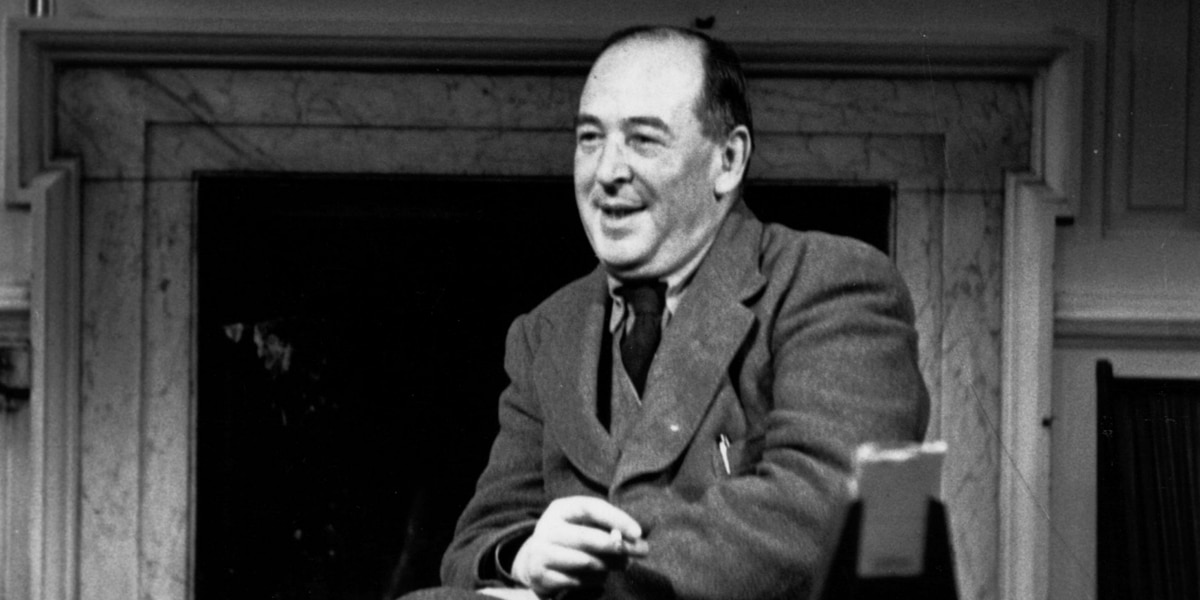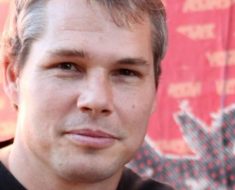
Clive Staples Lewis net worth is $50,000. Also know about Clive Staples Lewis bio, salary, height, age weight, relationship and more …
Clive Staples Lewis Wiki Biography
Clive Staples Lewis was born on 29 November 1898, in Belfast, Northern Ireland UK, and is still widely known as a novelist, poet, academic, medievalist and literary critic, among other professions acknowledgements. He wrote books such as ‘‘The Case for Christianity’’ and ‘‘The Allegory of Love’’, however, he is best known to younger readers for writing a series of children’s books, ‘‘Chronicles of Narnia’’. Lewis passed away in 1963.
So just how rich was C. S. Lewis? According to authoritative sources, this writer had net worth of only a little over $50,000 at the end of his life, with his wealth being accumulated from his over three decades long career in the previously mentioned fields, including his academic appointments.
Lewis was fascinated with animals as a boy, and had a dog named Jacksie; when his dog died having been hit by a car, the sorrow-stricken Lewis announced that his name from that moment was Jacksie, and he wouldn’t respond to any other name – this is where his nickname Jack comes from, as he would later on be called Jack by his friends. Speaking about his education, Lewis was educated by private tutors until the death of his mother in 1908. After that, his father sent him to study at Wynyard School, located in Watford, Hertfordshire, alongside his brother. Additionally, he was a student of Campbell College, however, as he had health issues, he was sent home, but he then began attending Cherbourg House preparatory school, after which he enrolled into Malvern College, and then studied with his father’s tutor, William T. Kirkpatrick.
At one point, Lewis became an atheist, despite previously being a Christian. He was reportedly fascinated with Irish mythology and literature, and was interested in the Irish language. As of 1936, he wrote his first book ‘‘The Allegory of Love: A Study in Medieval Tradition’’, and in 1939 ‘‘The Personal Heresy: A Controversy’’, with the latter consisting of a series of articles. In 1942 he published ‘‘The Case for Christianity’’, a theological book written during the World War II. In 1955, C.S. Lewis wrote his autobiography entitled ‘‘Surprised by Joy: The Shape of My Early Life’’, in which he focused on joy and its definition more than on historical facts regarding his life.
As of 1950, he began writing the ‘‘Chronicles of Narnia’’ books. The first book – ‘‘The Lion, the Witch and the Wardrobe’’ – didn’t receive critical praise nor acclaim at that time, as it was believed that children’s book should be realistic. Despite that, in the early 2000s the book was enjoyed by readers across the world, which ultimately resulted in it being adapted into the movie of the same title, and was rewarded with an Oscar award and was nominated for numerous other awards. As it was based on Lewis’ book, the book and Lewis himself gained vast popularity, to the point where the book is nowadays considered one of the best English books written since 1923. In 1951, he wrote its sequel – ‘‘Prince Caspian’’ – and in 1952 ‘‘The Voyage of the Dawn Treader’’. To conclude, ‘‘Chronicles of Narnia’’ franchise has seven books, with the last one being written in 1956.
Besides writing fiction and non-fiction, Lewis was also a poet, and in that field he wrote ‘‘Spirits in Bondage’’ and one narrative poem – ‘‘Dymer’’.
When it comes to his personal life, C.S Lewis shared a lot information through his autobiography, in which he talked about the cultural shock he faced after moving to England. He was married to Joy Davidman from 1956 until her death in 1960. Lewis died on 22 November 1963, from the effects of renal failure.
IMDB Wikipedia “The Lion” C. S. Lewis Chronicles of Narnia Clive Staples Lewis Dymer Joy Davidman Prince Caspian Spirits in Bondage Surprised by Joy: The Shape of My Early Life The Allegory of Love The Allegory of Love: A Study in Medieval Tradition The Case for Christianity The Personal Heresy: A Controversy The Voyage of the Dawn Treader the Witch and the Wardrobe
Clive Staples Lewis Quick Info
| Full Name | C. S. Lewis |
| Net Worth | $50,000 |
| Date Of Birth | November 29, 1898 |
| Died | November 22, 1963 |
| Place Of Birth | Belfast, Northern Ireland, UK |
| Height | 1.80 m |
| Profession | Poet, Philosopher, Presenter, Screenwriter, Novelist, Essayist, Literary critic |
| Education | Wynyard School, Campbell College, Cherbourg House preparatory school, Malvern College |
| Nationality | Irish, British |
| Spouse | Joy Davidman |
| Parents | Albert James Lewis, Florence Augusta Lewis |
| Siblings | Warren Lewis |
| https://www.facebook.com/CSLewisOfficial | |
| https://twitter.com/cslewis | |
| Google+ | https://plus.google.com/+CslewisOfficial |
| https://www.instagram.com/cslewis_official | |
| IMDB | www.imdb.com/name/nm0507000 |
| Awards | Carnegie Medal |
| Nominations | Kids’ Choice Award for Favorite Book (2006), Prometheus Hall of Fame Award (2008), Prometheus Hall of Fame Award (2007), Prometheus Hall of Fame Award (2003), Hugo Award for Best Dramatic Presentation, Long Form (2006), Retro Hugo Award for Best Novel (2014), Retro Hugo Award for Best Novel (2001)… |
| Movies | The Chronicles of Narnia: The Voyage of the Dawn Treader, The Chronicles of Narnia: Prince Caspian, The Chronicles of Narnia: The Lion, the Witch and the Wardrobe, The Lion, the Witch and the Wardrobe, The Chronicles of Narnia: The Silver Chair |
| TV Shows | The Chronicles of Narnia |
Clive Staples Lewis Quotes
- When the whole World is running towards the edge of a cliff, he who runs in the opposite direction seems to have lost his mind.
- What you see and hear depends on where you are standing, and on what kind of person you are.
- It is an outrage that they should be commonly spoken of as Intellectuals. This gives them the chance to say that he who attacks them attacks Intelligence. It is not so. They are not distinguished from other men by an unusual skill in finding truth nor any virginal ardour to produce her…It is not excess of thought but defect of fertile and generous emotion that marks them out. Their heads are no bigger than the ordinary: it is the atrophy of the chest beneath that makes them seem so.
- We all want progress, but if you’re on the wrong road, progress means doing an about-turn and walking back to the right road; in that case, the man who turns back soonest is the most progressive.
- I know that some people say the idea of a Law of Nature or decent behaviour known to all men is unsound, because different civilisations and different ages have had quite different moralities. But this is not true. There have been differences between their moralities, but these have never amounted to anything like a total difference. If anyone will take the trouble to compare the moral teaching of, say, the ancient Egyptians, Babylonians, Hindus, Chinese, Greeks and Romans, what will really strike him will be how very like they are to each other and to our own.
- When I became a man I put away childish things, including the fear of childishness and the desire to be very grown up.
- Consequently atheism turns out to be too simple. If the whole universe has no meaning, we should never have found out that it has no meaning: just as, if there were no light in the universe and therefore no creatures with eyes, we should never know it was dark. Dark would be without meaning.
- I’m more Welsh than anything, and for more than anything else in my ancestry I’m grateful that on my father’s side I’m descended from a practical Welsh farmer. To that link with the soil I owe whatever measure of physical energy and stability I have. Without it I should have turned into a hopeless neurotic.
- If Aslan represented the immaterial Deity in the same way in which Giant Despair [a character in The Pilgrim’s Progress] represents despair, he would be an allegorical figure. In reality however he is an invention giving an imaginary answer to the question, ‘What might Christ become like, if there really were a world like Narnia and He chose to be incarnate and die and rise again in that world as He actually has done in ours?’ This is not allegory at all.
- Some people seem to think that I began by asking myself how I could say something about Christianity to children; then fixed on the fairy tale as an instrument, then collected information about child psychology and decided what age group I’d write for; then drew up a list of basic Christian truths and hammered out ‘allegories’ to embody them. This is all pure moonshine. I couldn’t write in that way. It all began with images; a faun carrying an umbrella, a queen on a sledge, a magnificent lion. At first there wasn’t anything Christian about them; that element pushed itself in of its own accord.
- A man who was merely a man and said the sort of things Jesus said would not be a great moral teacher. He would either be a lunatic – on the level with a man who says he is a poached egg – or he would be the devil of hell. You must take your choice. Either this was, and is, the Son of God, or else a madman or something worse. You can shut Him up for a fool or you can fall at His feet and call Him Lord and God. But let us not come with any patronizing nonsense about His being a great human teacher. He has not left that open to us. He did not intend to. – from Mere Christianity
- Christ died for men precisely because they were not worth it; to make them worth it
- In arguing against Him, you are arguing against the very power that makes you able to argue at all.
- [Written on his wife’s tombstone] Here the whole world (stars, water, air, And field, and forest, as they were Reflected in a single mind) Like cast off clothes was left behind In ashes yet with hope that she, Re-born from holy poverty, In Lenten lands, hereafter may Resume them on her Easter Day.
- All that is not eternal is eternally out of date.
Clive Staples Lewis Important Facts
- Died a week before his 65th birthday.
- Author Neil Gaiman is a big fan of Lewis. He read the entire Chronicles of Narnia after seeing The Lion, the Witch, & the Wardrobe (1988).
- A close personal friend of J.R.R. Tolkien.
- He was home-schooled until the age of ten. His mother taught him French and Latin and his governess taught him all other subjects.
- The head of his boarding school was a cruel tyrant who was later committed to an insane asylum. As a result, bad teachers and poor schools are frequently mentioned in his books.
- In the Narnia Chronicles, Lewis often uses relevant words from foreign languages to name important characters. For instance, “aslan” is the Turkish word for “lion,” and the French word “jadis” means “of old” (in his first Narnia book, “The Lion, the Witch, and The Wardrobe”). Lewis says that the White Witch, whose name is later revealed to be Jadis, uses the “Old Magic,” but Aslan’s magic is even older.
- He allegedly declined British knighthood for his services to literature.
- C.S. Lewis wrote ‘The Lion, The Witch And The Wardrobe’ for his Goddaughter, Lucy.
- For many years, the Narnia books were read in the same order in which they were written and published: 1. The Lion, the Witch and the Wardrobe (1950) 2. Prince Caspian (1951) 3. The Voyage of the Dawn Treader (1952) 4. The Silver Chair (1953) 5. The Horse and His Boy (1954) 6. The Magician’s Nephew (1955) 7. The Last Battle (1956) In recent years, the books’ publishers have reordered them so that the stories take place in a more chronological order: 1. The Magician’s Nephew 2. The Lion the Witch and the Wardrobe 3. The Horse and His Boy 4. Prince Caspian 5. The Voyage of the Dawn Treader 6. The Silver Chair 7. The Last Battle The “correct” order in which one should read The Chronicals of Narnia is a subject of fierce debate, with both orders having their defenders and attackers.
- When he married Joy Gresham, she had already been married to and divorced from her first husband, Bill Gresham. Lewis adopted the Greshams’ two sons, David and Douglas, and made them the heirs to his estate, including the royalties to the Narnia books.
- Is portrayed by Joss Ackland in Shadowlands (1985) and Anthony Hopkins in Shadowlands (1993).
- Joined the Somerset Light Infantry, a regiment of the British Army, in World War I.
- He based Ransom, the main character in two of the works in his Perlandra trilogy, after his friend J.R.R. Tolkien.
- His life and work seem to have attracted the attention of both of the actors who have played Hannibal Lecter. Lewis was played by Anthony Hopkins in Shadowlands (1993), and his character Aslan was to be voiced by Brian Cox in The Chronicles of Narnia: The Lion, the Witch and the Wardrobe (2005) before the filmmakers changed their minds and replaced Cox with Liam Neeson.
- As with what happened to J.K. Rowling with her Harry Potter series, “The Lion, the Witch, and the Wardrobe”, the first book of C.S. Lewis’s seven-book series “The Chronicles of Narnia”, suffered an alteration made by American publishers. The book features a wolf named Maugrim, whose name was changed to Fenris Ulf in the American publication. The sixth book of the series is entitled “The Magician’s Nephew” and tells how the Land of Narnia was created and discovered by Professor Digory Kirke when he was a boy.
- His speech patterns, and some aspects of his personalities, were the basis for the character of Treebeard in The Lord of the Rings: The Two Towers (2002)
- Sci-fi master Arthur C. Clarke regards Lewis’ two books “Out of the Silent Planet” and “Perelandra” as “two of the very few works of space fiction that can be classed as literature.”
- Died on 22 November 1963, the same day as writer Aldous Huxley and President John F. Kennedy, as result of the various illnesses Lewis had.
- As a child he never liked his birth names, Clive Staples. When his dog Jacksie got run down, he announced that he would always be known by the name of his dead dog. It developed from “Jacksie” to “Jack” over the years. Many of his fans refer to him as “Jack Lewis.”.
- Member of the Oxford literary circle the ‘Inklings’ along with writers J.R.R. Tolkien, Jeremy Dyson, Charles Williams, Messrs Coghill, and Owen Barfield.
- The play of “Shadowlands”, also by William Nicholson ran in London, starring Nigel Hawthorne and Jane Lapotaire.
Clive Staples Lewis Filmography
| Title | Year | Status | Character | Role |
|---|---|---|---|---|
| The Chronicles of Narnia: The Silver Chair | novel announced | Writer | ||
| The Screwtape Letters: Letter 2 | Short author filming | Writer | ||
| The Screwtape Letters | 2014 | Short | Writer | |
| The Chronicles of Narnia: The Voyage of the Dawn Treader | 2010 | novel | Writer | |
| The Chronicles of Narnia: Prince Caspian | 2008 | novel | Writer | |
| The Chronicles of Narnia: The Lion, the Witch and the Wardrobe | 2005 | book | Writer | |
| The Silver Chair | TV Series novel – 3 episodes, 1990 novel “The Chronicles of Narmia” – 1 episode, 1990 | Writer | ||
| Prince Caspian and the Voyage of the Dawn Treader | TV Series novel “The Chronicles of Narnia” – 3 episodes, 1989 novel – 2 episodes, 1989 writer – 1 episode, 1989 | Writer | ||
| The Lion, the Witch, & the Wardrobe | TV Mini-Series novel – 5 episodes, 1988 book “The Lion, the Witch, and the Wardrobe” – 1 episode, 1988 | Writer | ||
| The Lion, the Witch & the Wardrobe | 1979 | TV Movie written by | Writer | |
| Jackanory | 1967-1968 | TV Series book – 10 episodes | Writer | |
| The Lion, the Witch and the Wardrobe | 1967 | TV Series novel – 10 episodes | Writer | |
| Story Box | 1963 | TV Series 1 episode | Writer | |
| The Blockbuster Buster | 2016 | TV Series dedicatee – 1 episode | Thanks |
Clive Staples Lewis Awards
| Year | Award | Ceremony | Nomination | Movie | Category |
|---|---|---|---|---|---|
| 2006 | Hugo | Hugo Awards | Best Dramatic Presentation – Long Form | The Chronicles of Narnia: The Lion, the Witch and the Wardrobe (2005) | Won |
| 2006 | Hugo | Hugo Awards | Best Dramatic Presentation – Long Form | The Chronicles of Narnia: The Lion, the Witch and the Wardrobe (2005) | Nominated |



